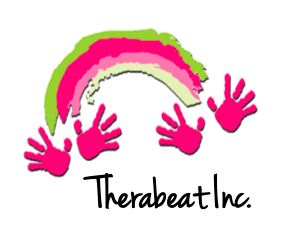High school can be difficult, but for a teenager with special needs, there are many more obstacles that can affect his/her success in a classroom. A person with special needs may have trouble processing academic concepts, processing directions, working well in a group setting, or staying on-task. Research suggests that music therapy is indicated to promote skills needed for success in the classroom.
In an article on the effectiveness of a music therapy social skills program in a private school, music therapists focused on integrating peer-relations and self-management skills into the classroom (Gooding, 2011, p. 440). Just as it takes time to establish a new habit, it takes time to learn social skills. Research shows us that learned social skills are more likely to grow with evidence-based programs such as music therapy. When desired skills are rehearsed and reinforced, they are likely to occur more often. Music therapy interventions such as movement to music, improvisation, or problem solving provide students opportunities to interact with peers and reinforce appropriate social skills (p. 444). Results from this study indicate that there were improvements in social competence in adolescents with social deficits (p. 440).
In this particular article, the students attended a school designed to meet their specific needs, but there is also research on the use of music therapy in public schools. The benefits of music therapy have been documented to reduce severely inappropriate behaviors, increase on-task behaviors, and teach social skills (Presti, 1984, p. 118). Music therapy interventions were used to provide opportunities for successful achievement of both behavioral and musical goals. For example, group cooperation skills may be targeted through playing a tone bar song together. Each student has a tone that corresponds to different parts of the song. On their own, it may seem like just one note, but together, they each contribute an equal part to the ensemble. If a music therapist was working on improving turn-taking skills in a group at a high school, he/she may use an intervention such as instrument soloing. Music can structure a turn-taking task by aloting turns for each student to play individually. Music is naturally rhythmic, so there is consistency to both waiting and playing. The structure becomes expected, which can decrease negative behaviors while increasing cooperative behaviors.
Whether it be in private or public schools, already existing music therapy programs are providing musical experiences to work toward a common goal: success! Music adds motivation, structure, and consistency to tasks. Wanted behaviors increase when they are reinforced over the course of time. When group cohesion and on-task behavior become consistent in the music therapy setting, these skills inherently become more consistent in the classroom setting. In this way, school music therapy programs are indicated to make the tough high school years less of a stress and more of a success!
-Anna Carter, Music Therapy Intern
Gooding, L. F. (2011). The Effect of a Music Therapy Social Skills Training Program on Improving Social Competence in Children and Adolescents with Social Skills Deficits. Journal of Music Therapy, 48(4), 440-462.
Presti, G. M. (1984). A Levels System Approach to Music Therapy with Severely Behaviorally Handicapped Children in the Public School System. Journal of Music Therapy,21(3), 117-125.

